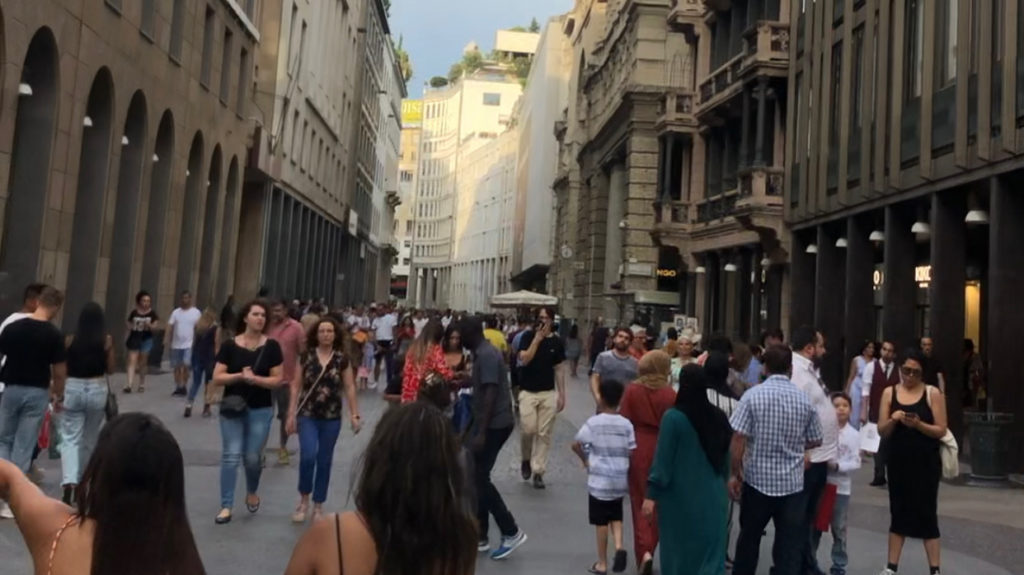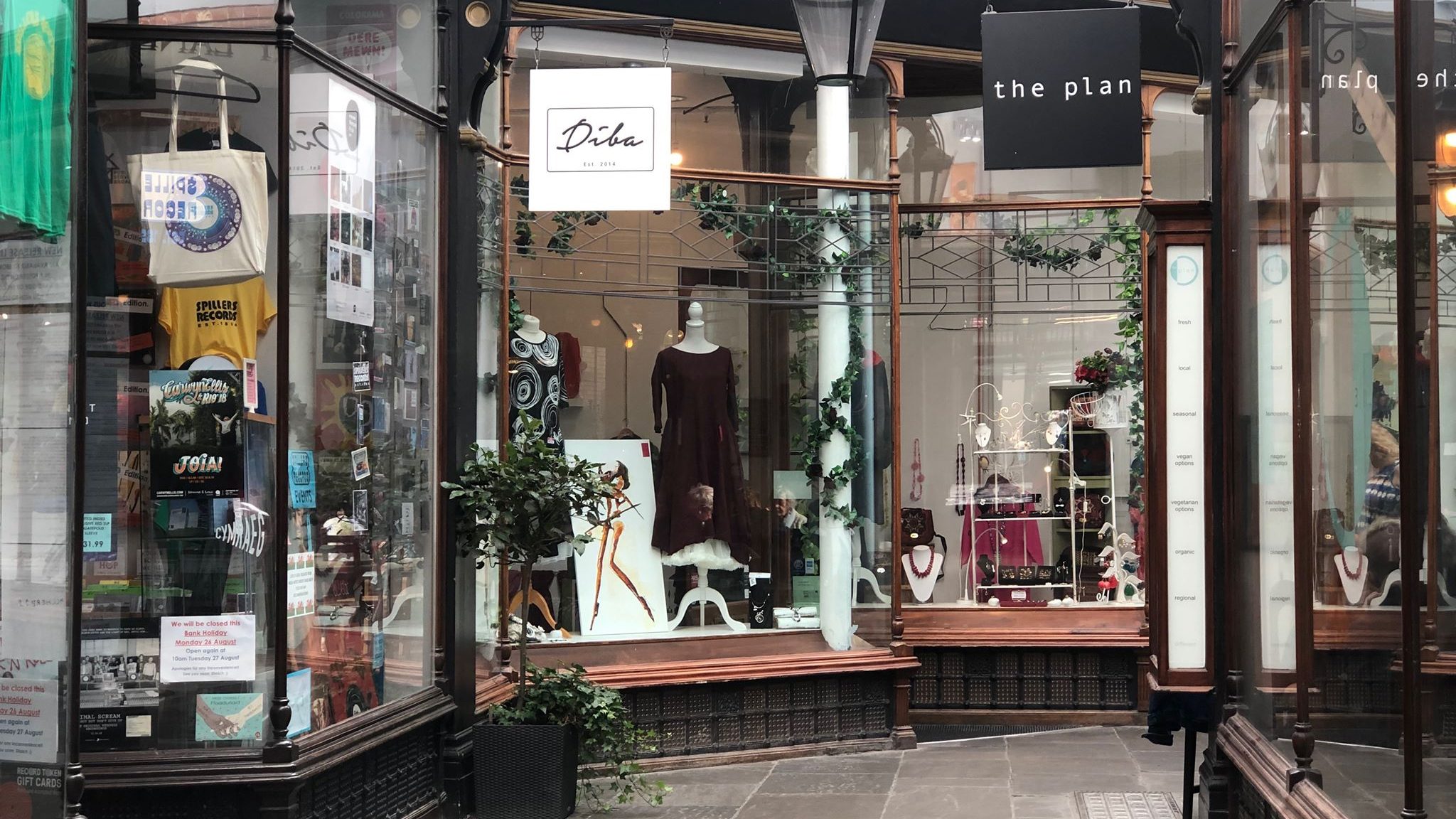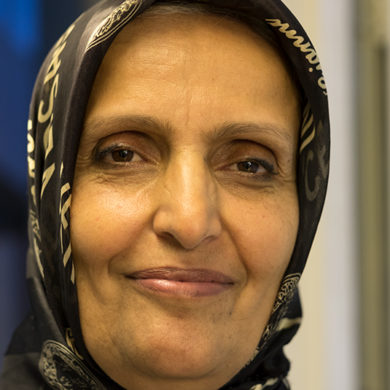90% of the fashion industry is small and medium businesses, but do they have enough preparation to survive Brexit?
Fashion hates Brexit. Engraved in bold, this white text on a black t-shirt screams at the reader. These t-shirts by designer Katherine Hamnett clearly state the views of 96% of the fashion industry who voted against Brexit in a poll conducted by the Fashion Roundtable. Designers are not only wearing their disapproval towards Brexit, but are actively voicing their opinions on social media and during interviews. When 10 Magazine asked designer Ashish Gupta what the best thing about living in the UK right now is, he answered, “That we are still in the EU”.
Ruth Marciniak, senior lecturer at British School of Fashion at GCU London, agrees that the industry is expressing their opinion on Brexit quite well. She says, “The British Fashion Council is lobbying the government. British fashion designers such as Paul Smith and Katherine Hamnett have been vocal about the effect of Brexit on the fashion industry.”
However, the industry employs around 1 million people, compared to that, the number of people representing the emotion against Brexit is much less. Also, they are worthless if they are not reaching the right people who could make the change.
“Coverage on fashion and Brexit has been increasing, and it is well-covered by fashion-specific outlets such as the BOF. However, fashion is still very under-valued, and the impacts of Brexit (and policy in general) are not really discussed in relation to fashion. For example, until FR was founded in 2017 (one year after triggering Article 50), the fashion industry had not been brought up in any Brexit debates in the HoC. This only changed because FR lobbied for a PQ to be asked about fashion.” said Rafaella de Freitas the political research assistant at the Fashion Roundtable.
According to the Fashion Roundtable’s official website, Fashion Roundtable is dedicated to generate better opportunities and incubates solutions and voice the needs of the entire industry. They are “Uniquely positioned between the fashion industry and policy leaders.” Fashion’s representation directly into politics increased only after FR came into being.
The Fashion Roundtable have discussed the issue of Brexit and how it would impact the industry in great detail in their discussions dedicated to the topic. “We have hosted a series of meetings, both in Parliament and across the UK as well as attended meetings in Brussels and promoted the voice of the industry which many, until I launched FR had not considered properly in their dialogues with industry. We created the only Brexit paper and I have spoken at events and on TV about this”, said the CEO of Fashion Roundtable, Tamara Cincik.
The industry is making progress with the government and there seem to be some options available to companies to pursue in regard to Brexit. However, they do not include funding the industries and many small industries are not aware of the opportunities they have.
Maryam, owner of small business Liba in Cardiff answers if she thinks she will get support from the government during Brexit, “No, the government never support us. I told you, if government doesn’t take anything from us, they never help us. Last Christmas was so flat, and everything was half price even before Christmas. When we got the VAT, I told them everything is half price, even less than half-price because our customers disappeared and the business is not very great. They said we don’t care. That’s it. That was the latest sentence they said. So, they don’t care, that’s it.”
The government’s Department for Digital, Culture, Media and Sport may not provide Maryam with financial benefits, but they may soften the blow of financial losses due to Brexit by helping her prepare for the same.

Rafaella de Freitas says, “The DCMS have designed some leaflets on how to prepare for a no-deal scenario, and have recently released a ‘how prepared are you for no-deal’ survey for companies to understand what they need to work on. Furthermore, the Home Office included the Creative Industries Federation in the Employers’ Advisory Group for the UK’s future skills-based immigration system: advisory group membership policy paper, which shows their consideration of the fashion and creative industries in the UK. As FR are members of the CIF, we give them information about the fashion industry, which is then brought up during the meetings. More could be done, but it is also the responsibility of trade bodies and membership groups and organisations to make sure the industry is prepared. Another big issue with Brexit is the uncertainty – if government and civil workers don’t know what will happen, they are limited in the support they can offer.”
High Street labels have also started preparing for the implications of Brexit.
The strategic report for M&S 2019, acknowledges the business pressures it will endure due to the Brexit uncertainty. It states problems like costs due to restrictions of movements, problems with suppliers, tightening of labour market, increased complexity and cost in international operations, including franchise partners and much more. However, M&S acknowledges that Brexit does not individually threaten the viability of the company and have put up steps to deal with it.
It has established an operational team. It plans to stockpile food, has discussed with its clothing and home traders in the EU to maintain a fluent supply. The strategic report states, “We have also worked with our franchise partners and owned businesses to set up new import systems and evaluated options to maintain the flow of products across our operations in Ireland.”
The preparations and fears for other high street labels like Next have been the same.
A research conducted by the University of St. Andrews reveals that Small and Medium-Sized companies may suffer more because of the uncertainty related to Brexit. One of the researchers, Mr. Ross Brown told the media at University of St. Andrews, “The results of our analysis suggest that Brexit-related concerns could result in a range of negative consequences for UK SMEs, especially the impact on reduced capital investment, which critically weakens and undermines their ability to grow and prosper.”
Fashion is a contributor to 32bn of the UK’s economy and 90% of the fashion industry consists of Small and Medium enterprises as reported by the British Fashion Council. According to the study by the University of St. Andrews, “The perceived negative effects of Brexit appear to be more prevalent for innovative and export-oriented SMEs, the firms often viewed as the high growth superstars of tomorrow.”

Samuel Nicholls the political director at Fashion Roundtable said during a discussion of Brexit. “If you are a major finance organisation or a major consultancy or something a thousand members of staff, the idea of being able flexibly a new office on the constituent is not that shocking it happens now, even regardless of the decision to leave the European Union so I think it’s really key that that’s really a central part of what we are trying to get across here that there are people who are significant contributors within the scale of the community they are operating in and that we should not be advocating for a policy which directly discriminates against them. We should be encouraging it.”
A survey answered by 80 Cardiff University students showed that while 54 per cent of people buys clothes from any place they see something cool and affordable, and 35 per cent people buy from high street brands, leaving only 10% loyal customers for the charity shop and local designers. So, when prices rise for all the fashion labels and they make their products expensive, then most people buying from local designers may shift to cheaper options.
The study by the University of St. Andrews showed, “How innovative SMEs respond to Brexit is likely to be a key determinant of future economic growth.”
However, SME’s are stuck and find themselves not earning profits because of trying to maintain their customer loyalty.
According to Katie Baldwin, “No matter the outcome of Brexit, if a brand/company is seen to be adversely affected then the consumer is more likely to want to avoid that company so as to not be associated with them. Similarly, if companies inflate their prices by a significant amount to be able to cover increased taxes and duties, the consumer may not be able to justify staying loyal to the brand/company and will tend to shop elsewhere.”
Talking about price rise for British businesses, Elis Morgan the owner of Morgan Menswear says “Say the British designers are buying the fabrics for which they pay more, then they gotta put the prices of their clothes up and then you gotta sell for more really because otherwise we are just kinda losing money. Or sometimes we even not do the recommended retail, we kinda kept them the same price just to keep your customers happy.”
Not only are they afraid of losing their customers, but many small and innovative companies are having to dissolve due to Brexit already.
Giving an example of another creative industry. Daniel Williams is a professional filmmaker who was offered a job by film company Tornado Studios straight after his graduation and was assigned to produce and direct four feature films in a three-year period.
“In December of 2018, Tornado Studios split into the two entities where myself and the other Film Producers migrated to Copper Collaborative and I was offered a new rolling contract that secured myself a longer stay at the company rather than the four years that was previously contracted. It wasn’t until mid-way through January 2019 that I was informed by my boss in person that in two weeks I would be leaving the company. The reasons informed was simply due to money, as the company would take practice in getting financial support from HMRC.
“During the last two weeks of my time at Copper Collaborative, the other Film Producers were told the same fate that I had gotten as well as the Editing, Sound, Accounting and VFX departments. On January 31st, we all left Copper Collaborative and Tornado Studios.” said Daniel.
Williams’ company Copper Collaborative was receiving funds by the government to stay afloat. “I was told by my boss that HMRC was affected by Brexit and that because of the uncertainty with it over the last few years, a knock-on effect happened. HMRC are in a cautious position and was not going to distribute a cash flow to these companies, resulting in CC and TS running out of funds”, said Daniel.

Many small companies like Copper Collaborative that depend on the government’s funds to survive are having to dissolve or are at risk due to Brexit.
“The future course and the impact on the British Fashion Industry is highly dependent on what exactly the ‘Brexit’ outcome will be. If the industry has strategised its approach and prepared itself for a multitude of Brexit scenarios, then we are fully equipped to handle Brexit head-on.” says Katie Baldwin, Finance Analyst at Pentlam Brands, London. “The key areas to focus on are supplier relationships, analyzing their current infrastructure and also considering possible import/export options should there be barriers to trade. “
However, small and medium enterprises do not seem prepared for the upcoming political upheaval.
Many stores like Allison Jayne in Wales (awarded best boutique for wedding dresses in Wales), sell clothes by designers from Spain and other parts of EU. Even though the store receives all of its clothes from Spain, the owners do not seem worried about the political event that is bound to occur in two months and is possibly going to increase their costs magnanimously. The spokesperson at Allison Jayne said, “We don’t give it much thought, to be honest. We just get on with business.”
Small Individual designers that are struggling to set up businesses are also concerned about Brexit but have no way of preparing. “It’s pretty hard to think about it when I have started a new job, and I’m moving house and trying to organise a launch event. It’s hard to prepare for something I know very little about,” said Abigail Noronha owner of Ellis Noronha.
“It’s so uncertain I really don’t know. It feels like a line is being drawn and that we are somehow being detached. I guess this is scary and also the finance that might’ve been available to us might not be any longer if funding and banks are uncertain of their futures. Travel and connections feel like they will be restricted. I guess we will have to be as innovative about how we perform our business as we are with our work! A lot of financial support from government and non-government schemes are only available once a business has been trading for a couple of years. We are nowhere near this at the moment so have only been researching what might become available to us. We are trying to keep on top of any changes that might happen over this time.”
Brexit is worrying for the designers and the situation is getting worse with it leaning towards the No-Deal spectrum every day.
Elis Morgan says, “I’ve got no hopes really just trying to get in the best. Hopefully, the best out of loads of bollock that it is really. And so you just hope that everything will kinda die down a bit and yeah then just yeah just keep on going.”

